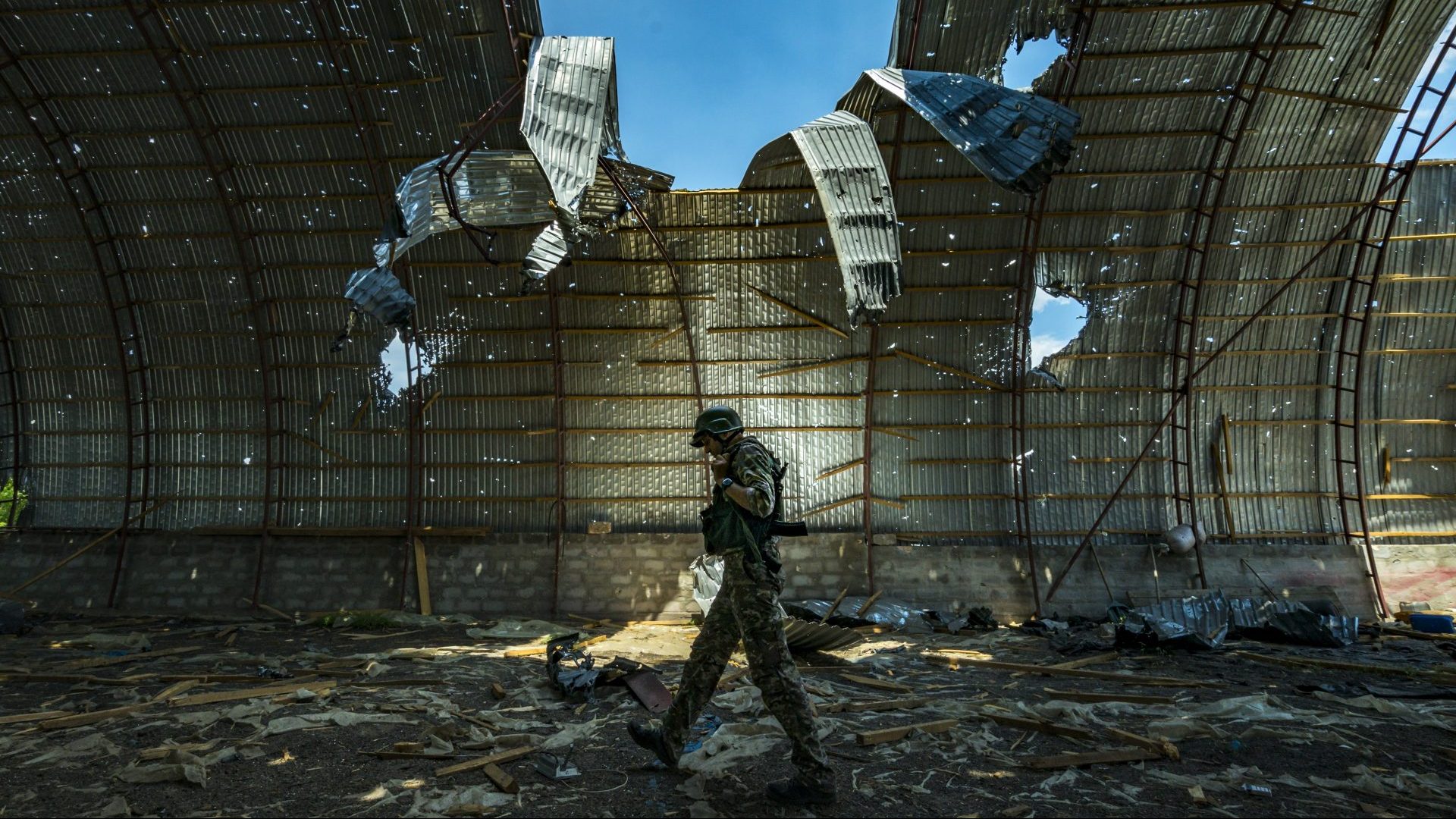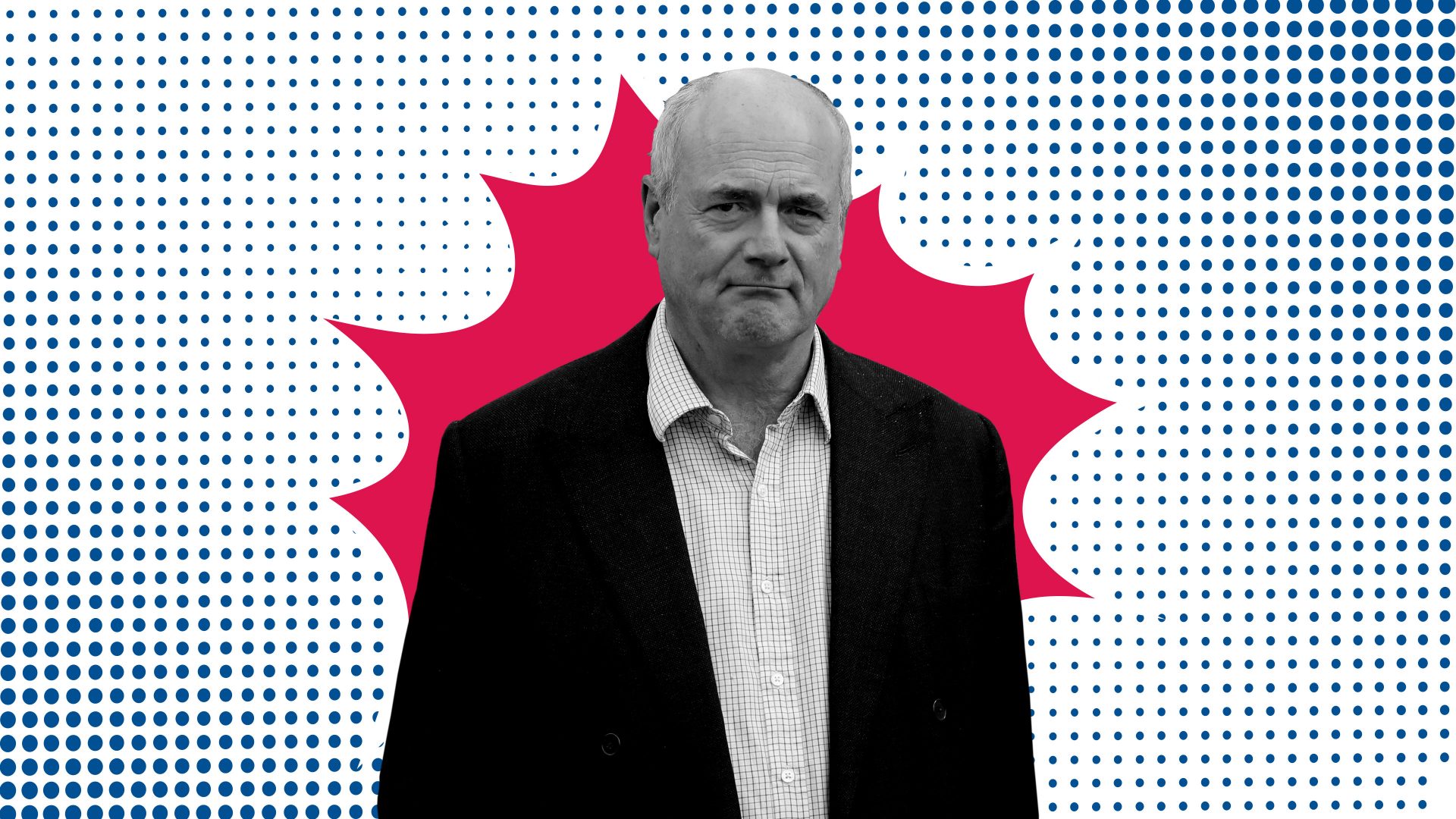Something has fundamentally changed in how we talk about Ukraine. As recently as four to six weeks ago, we had a narrative that most of us liked: the plucky underdog holding back the clear aggressor – confounding a world that had expected the country and its capital to fall in less than week.
The survival of Volodymyr Zelensky itself – let alone his telegenic speeches and virtual appearances at parliaments across the world – became a source of inspiration, and photos and videos of Russian losses went viral across the world, especially when they involved tractors dragging off Russian heavy machinery.
Such myth-making did not come out of thin air: the Ukrainian government were extremely comms-savvy (they’re rumoured to have had outside help on that front) and also secured an unusual tacit agreement from most of the world’s media: they asked for outlets not to report Ukrainian troop movements or losses, and most outlets complied.
Whether such a tacit agreement – outlets did not conspire with one another to push a particular agenda, but did hit on a common approach – is a legitimate one is an open question. What is much more certain is that the agreement is falling apart: outlets are increasingly willing to report on Ukrainian losses, with recent stories suggesting the country is losing 100 to 200 troops every day in the Donbas region.
Stories of liberation around Kyiv and Kharkiv are being replaced with pieces reporting a long and bloody stalemate in the east of Ukraine – and that is a story those of us with the luxury of distance to the conflict find much less appealing. Ukraine takes up fewer minutes of each evening bulletin with each passing week, and Ukrainian memes don’t go viral anything like as much as they used to.
The war in Ukraine is still a bloody horror and a travesty of all international laws and norms. We have just stopped caring nearly so much about it. Opinions that a few weeks ago would have been niche and drawn condemnation are now easily falling from mainstream commentators’ mouths: Ukraine should sue for peace, they say. They should accept losing more territory in the east of their country. Vladimir Putin needs a “win”.
This ignores several fundamental realities of this conflict.
The first is that Russia has no offer on the table to Ukraine, and peace talks have been stalled since April. There is no “deal” to accept or barter over.
The second is that the West has grudgingly allowed Putin “wins” time and time again, and each has only emboldened him to push the boundaries further and harder, to become ever more settled in his megalomania, and ever more erratic. There comes a point where continuing to try the same failed tactic of appeasement looks like insanity, as well as folly.
A third issue comes from what Putin would expect in exchange for a deal: the current supposed “independent” regions in eastern Ukraine are not recognised by any countries other than Russia. The sense that they are occupied territories rather than truly independent is codified and settled on the international stage.
Russia would require Ukraine to recognise them as outside of its territory as part of the cost of any deal – it would serve to belatedly legitimise one of the most blatant acts of international aggression in living memory.
But Putin would be unlikely to stop there: the price for peace may also be to require western nations to drop many or even most of the swingeing sanctions placed on Putin, his coterie, and his country. For many vacillating European countries, this could come as a relief – they could go back to filling Putin’s coffers by buying Russian oil and gas, and their accounts, lawyers, publicists and luxury brands could go back to suckling at the teat of the oligarchs who rob the Russian people blind.
But it would mean that once again, Russia escaped consequences for its actions. The virtually unprecedented unity that led to a sanctions package far harsher than most expected would crumble, becoming only a façade that anyone could see through. Who would fear the economic pain of western sanctions again, if they could be confident that the resolve wouldn’t hold?
All of those concerns, though, fade into nothing versus the main one: it is not for other countries to tell Ukraine when it should or shouldn’t accept an invasion, or when it should decide the cost of resisting is too high. #
For those of us sitting in safety, thousands of miles away from the fighting, to call for concessions because we worry about the cost of food or gas is a disgrace to those risking their lives to protect their homes, their families and their countries. It is decadence and arrogance of the very lowest kind.
If Ukraine chooses to sue for peace tomorrow, we should respect that decision. If they choose to fight on, we owe them our continued and whole-hearted support: financial aid, military aid, and the eyes of the world are surely the very least we can give them.
Russia is relying on the same tactic it has for hundreds of years: Russia is always willing to fight a war of attrition, ignoring its own losses and casualties – surely no one can imagine Putin shedding a tear at a battlefield casualty report – and pursuing a vicious, grinding war until the other side can bear the losses no more.
After the failure of its reckless and overconfident blitz strategy, Russia has gone back to that familiar tactic, with consequences as horrifying as when it did just the same in Syria – using artillery with abandon, grinding forward, keeping its supply lines short and chipping away, inch by inch, with no concern for the price of acquiring new ground.
The approach may yet pay off well for them, though we shouldn’t forget just how far we have shifted the goalposts for Ukraine: at the start of the conflict we expected the country to fall in days, and its president and generals to die even sooner. Now, we talk as if the only winning outcome for Ukraine would be reclaiming territory it hasn’t held since 2014. Real wars tend not to produce the clean ends we’re used to from the movies.
Russia’s war is coming at a terrible cost – Ukrainians are dying every day. Europeans may die in the winter, if the energy crisis is bad enough. The toll on African and Asian countries that rely on Ukrainian wheat exports could eventually be higher still. But those deaths are all on Putin. We must not reward him for his cruelty.




